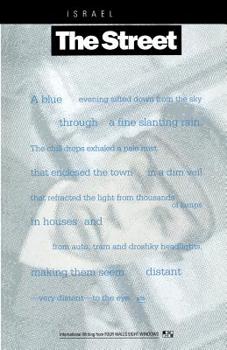The Street
Select Format
Select Condition 
Book Overview
"The Street offers an unsentimental portrait of Eastern European Jewish life, with none of the Shubert Alley schmaltz of Fiddler on the Roof or the mythopoeic grandeur of Isaac Bashevis Singer's fictions. . . . Rabon speaks to us today with immediacy and power, in this memorable novel about a vanished world quite like our own."--New York Newsday A master novelist of city life, Israel Rabon describes in The Street that peculiar moment in recent history--Eastern Europe between world wars. Day to day reality had shattered into pieces, yet people still seemed empowered with an unearthly optimism. His characters include a tubercular clown, a suicidal poet and his handsome young wife, a circus wrestler, and an ex-soldier who finds employment reading aloud the titles at a movie theatre for an illiterate audience. The eerie power of this book lies in its unerringly accurate depiction of human frailty.
Format:Paperback
Language:English
ISBN:094142345X
ISBN13:9780941423458
Release Date:January 1990
Publisher:Grand Central Publishing
Length:200 Pages
Weight:0.55 lbs.
Dimensions:0.5" x 5.6" x 8.5"
Related Subjects
Contemporary Fiction Genre Fiction Historical Literary Literature & Fiction World LiteratureCustomer Reviews
1 rating
a vision of stark desperate reality and hopeful fantasy
Published by Thriftbooks.com User , 28 years ago
The Street leads you into the life of a disillusioned and alone veteran. You experience the world as through the inner thoughts of a homeless, desparate veteran soldier. The narrator returns to lodz, poland after world war two, and is struck to find that he is not familiar with the world around him. He is broke and frightened upon re-entry into regular life. The Street follows the depth and despair of fantasy. Also, you see the ways that these darknesses might intwine with love and hope. Rabon explores the context of our emotions, and is able to illustrate how quick our mood may change. The characters are vulnerable and thoughtful. The street of the novel serves as a metaphor for being on the outside, for being poor and naive, in an industrial society. Rabon writes lyrically of the spare moments, as well as he writes clearly and plainly of the action. Yet the twists and turns of the yiddish language itself relate the story in a fundamentally non-traditional way. The book is a bridge between the stark realities of post-war life, and the magic of one's own journeys and fantasies.





